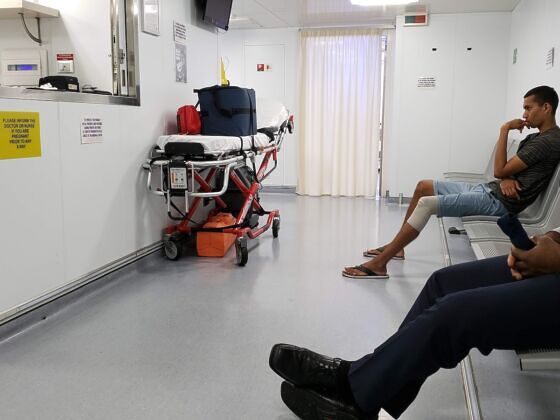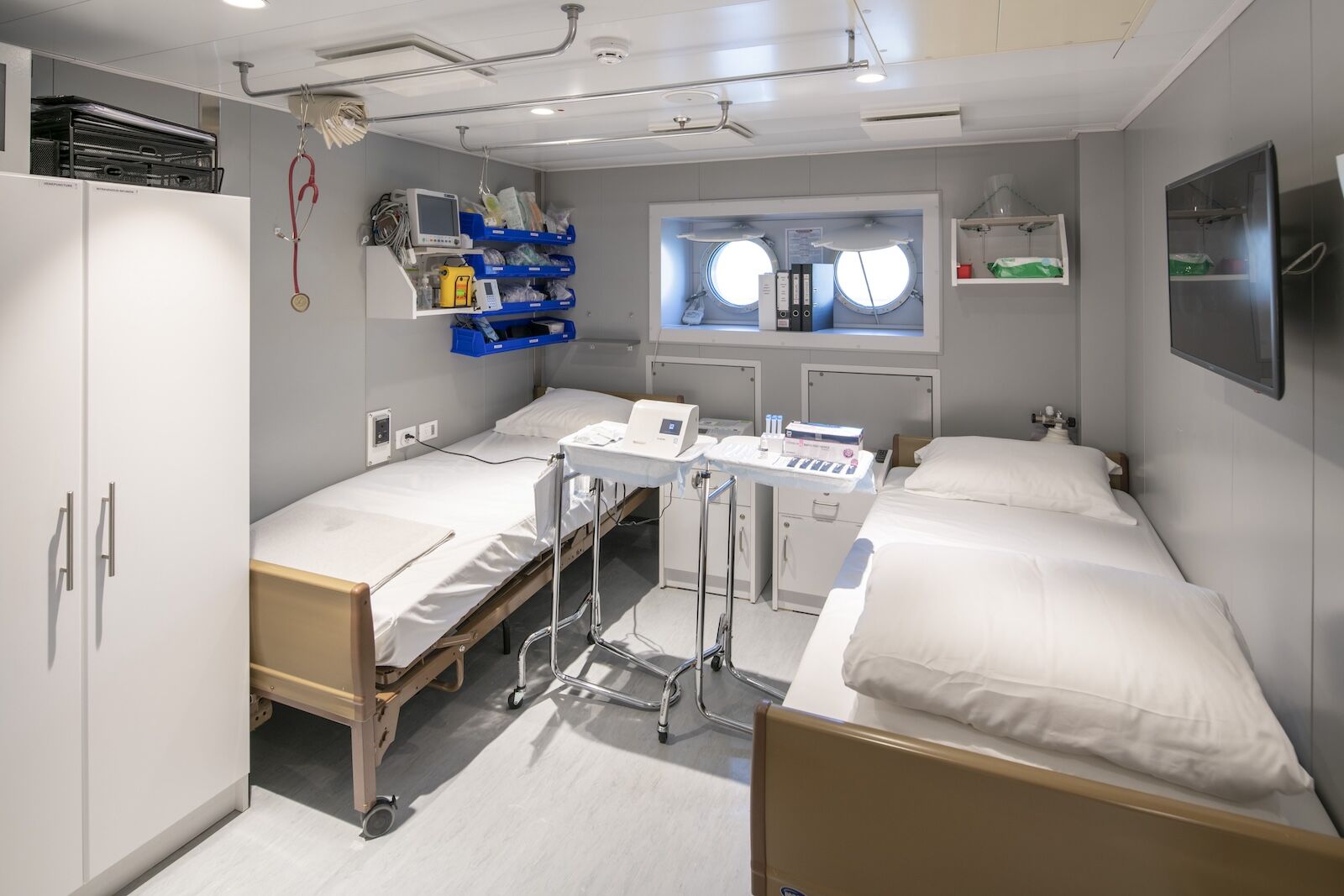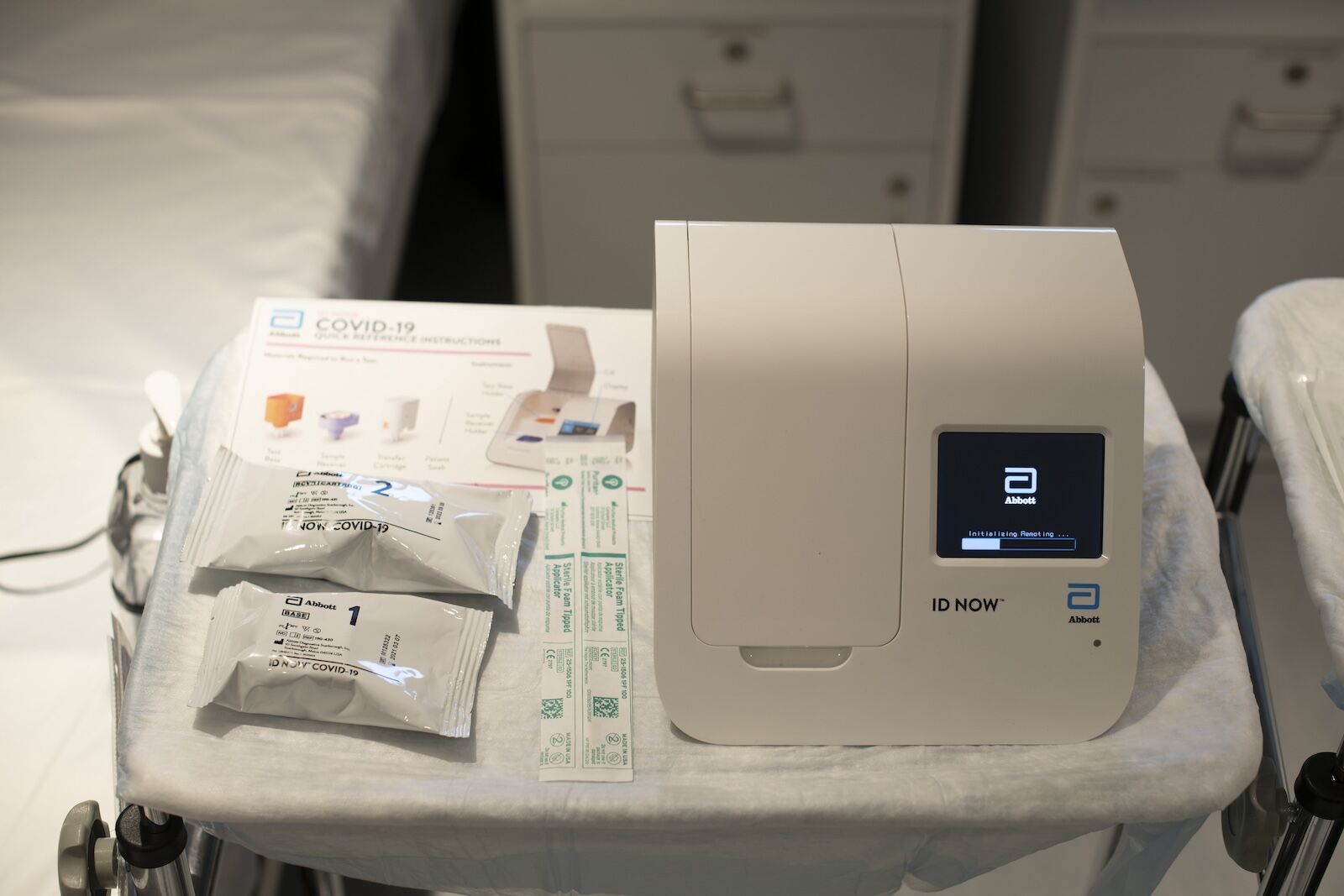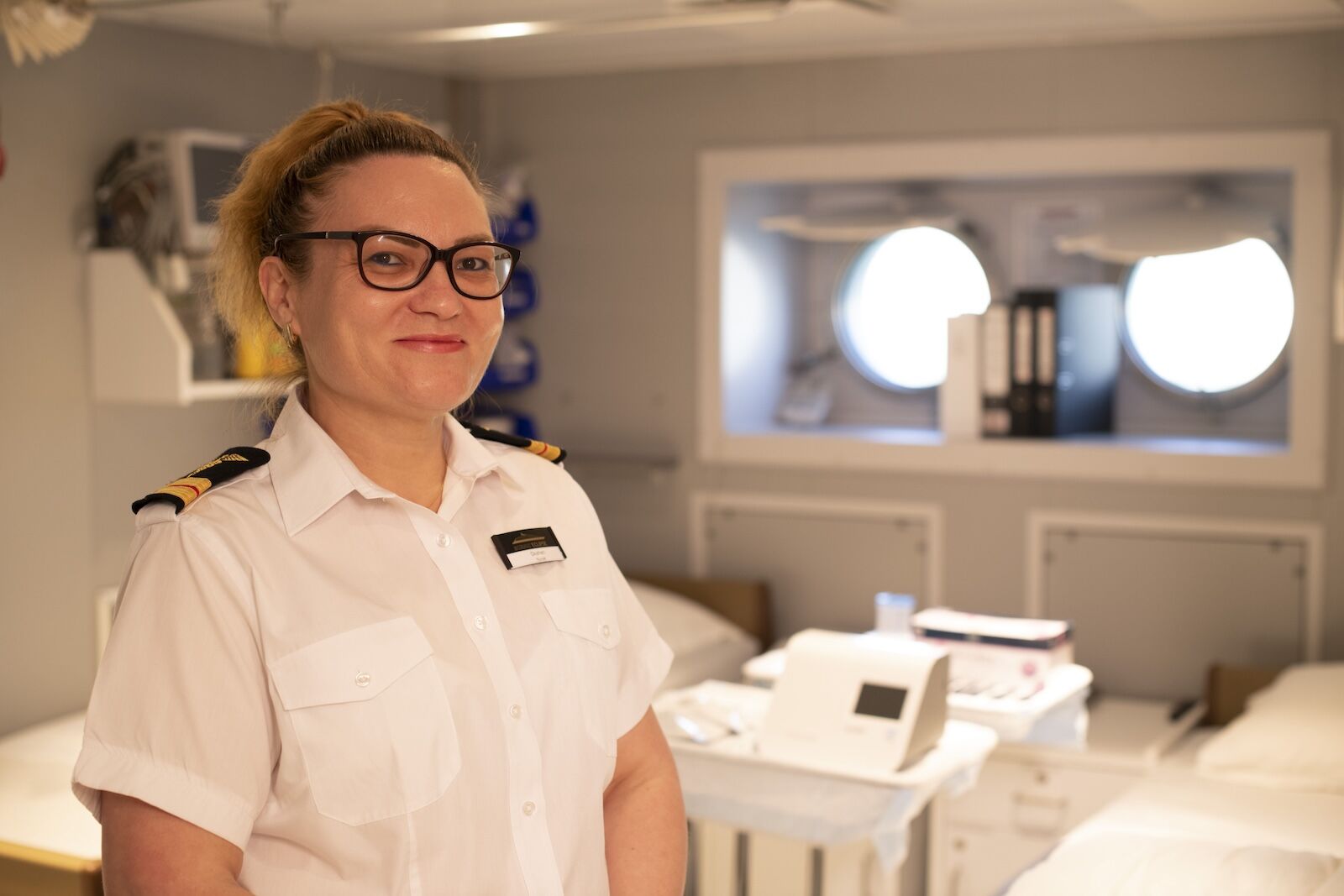In late May, as I was cruising on board the beautiful Sun Princess in the Mediterranean, testing out all its restaurants and enjoying the gorgeous ports of call, I suffered a minor medical issue. A bleeding wound on both my legs that could have been dealt with easily if I had been smart enough to travel with a first aid kit, required that I made a trip to the cruise ship’s medical center. I presented myself at the door of the infirmary at opening time and, in the space of less than one hour, the doctor examined me and a nurse cleaned me up and applied two dressings. In the background, I could hear the other staff walking in and out of the many rooms within the large space, talking about x-rays, medication, and follow-up appointments — the place was a hive of activity, with people queuing to see a medical professional. I had never imagined there was such a sophisticated medical facility on board.


While having to pay a visit to the medical center while on a cruise is rarely good news, it’s reassuring to know that it’s there, staffed with qualified professionals and decked out with a wealth of equipment.
That said, remember that medical help on board cruise is never free. For my quick trip to the infirmary, I was charged $104.65. Had I not been on a press trip during which my needs were covered by the cruise line, I would have had to use my travel medical insurance to get a refund.
“There is typically a set cost to visit the clinic during regular hours, with a standard starting rate of $100, which can increase if you need extra tests, x-rays, or if the infirmary staff needs to visit your quarters, during or after hours,” explains Dr. Jim Evans, MD, senior medical consultant at travel insurance provider Allianz Partners. “Your regular domestic medical insurance policy may not cover care that is received overseas or in international waters. Many travelers choose to purchase travel insurance with emergency medical coverage prior to cruising as your policy may reimburse you for the cost of medical care while cruising,” Evans continues.
To learn more about the medical care travelers can expect on board cruise ships, we talked to Liz Baugh, an HSE Offshore Medic who works as Scenic Group’s Lead Medical Consultant. (Scenic Group is comprised of Scenic Luxury Cruises & Tours and Emerald Cruises.) Baugh originally trained and served as a medic in the Royal Navy. Having worked within the Maritime sector for 25 years, she has been involved at all levels from actively delivering medical care on board, taking ships out of build, setting up new medical facilities, right through to supporting vessels at sea as a Medical Operations Manager for up to 26 operational vessels.
This interview has been edited for length and clarity.
Matador: How many people work in the medical centers on board Scenic ships and what are their roles?
Baugh: There are two people. A doctor and a nurse. They are there to provide care for all of the ship’s guests and crew, and be part of the ship’s management team, contributing to the overall smooth running of the vessel.
What speciality equipment can be found in the medical centers?


To ensure that the ship can remain as self-reliant as possible whilst still being able to manage a medical emergency, we have an intensive care bay with defibrillators, pacers, ventilators and also a range of blood analysers, ECG, a range of Point-of-Care rapid tests, oxygen concentrators and cylinders, specialist stretchers for rescue in difficult areas, and a well-stocked secondary medical position as part of our emergency preparedness.
What type of medication does the medical centers always carry?
A full set of emergency medications, including cardiac, respiratory, gastro, renal, endocrine, dermatology, gynae, antibiotics, pain relief, antiemetics, topical creams, eye, ear/nose/throat, cold and flu remedies, basic vaccines, post-exposure prophylaxis.
If a guest forgets their medication at home, can the medical centers help?
Part of the booking process is to remind guests to take enough medication for the entire trip plus some for contingency. If they run out or forget the medication then, if we carry that medication, we can provide them with a prescription, otherwise we will help source it in port and provide it through a local pharmacy.
How is the medical center restocked with supplies when the need arises?
We do quarterly resupplies for the ship with an approved supplier, we track usage carefully to make sure we are always stocked up on the regular-use items.
What is the most common type of medical issues treated in the medical centers on board Scenic ships?
Colds, seasickness, skin rashes, and minor muscular pain.
On average, how many people are treated in the medical centers daily? How many of these are serious?
Approximately five guests per day are seen mostly for seasickness or minor infections. We probably see one serious patient per month but not so bad that they need to go ashore.
We screen all passengers that travel in the remote sectors, this is to help us understand what sort of challenges we may be presented with. As an example, if they were seasick and couldn’t hold their medications down for their diabetes, we evaluate what impact this will have on their health and how can we support them.
What happens if there’s an emergency that cannot be treated in the medical center?
If the ship cannot treat a patient then an assessment is made on the severity of the problem. Then, we either refer them ashore to a hospital specialist when the ship is next in port or, if it cannot wait for that, we would arrange a medical evacuation using coastguard facilities. This is incredibly rare though.
We have built relationships with port agents and local clinics and hospitals where we know we can send our patients for quality care.
Are the medical centers on board Scenic ships open all day, every day?
The medical centre runs two drop-in clinics per day as the staff also have other duties that need to be fulfilled such as public health reporting, crew training, inventory management, and checks and controls. Should a person need to be seen outside of clinic hours, however, arrangements can be made through guest services.
Is the medical staff on call for emergencies at night or during the day when the medical center is closed?

Photo: Scenic Luxury Cruises & Tours
The medical staff are on call 24/7 for emergencies.
Are the medical centers for both crews and guests?
Yes, it is. International regulations provide us with the level of care that we have to provide to our crew and we go above and beyond that to maintain crew health and fitness.